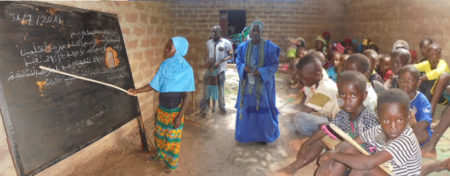Good news today from the U.S. State Department. Both Haiti and Senegal have been removed from the Tier Two Watch List in the annual Trafficking in Persons (TIP) Report, an indication that the governments of both countries are increasing their efforts to combat human trafficking.
Each year the U.S. rates the anti-trafficking effectiveness of all countries, placing nations on either Tier 1 (meets minimum anti-trafficking standards), Tier 2 (doesn’t meet standards but trying) Tier 3 (doesn’t meet standards and isn’t trying). A special Tier 2 Watch List exists to put countries on notice that they might be downgraded to Tier 3, which would trigger sanctions.
Haiti: Haiti has been upgraded from the Tier 2 Watch List to Tier 2. “The government demonstrated overall increasing efforts compared to the previous reporting period…investigating, prosecuting and convicting more traffickers, passing a national action plan, closing several abusive orphanages and increasing law enforcement training,” the TIP report says.
Senegal: Senegal has also been upgraded from the Tier 2 Watch List to Tier 2. “The government demonstrated overall increasing efforts by convicting six individuals involved in trafficking, including three traffickers posing as Quranic teachers who exploited children in forced begging…the government sentenced two of the three…to significant prison terms. The government identified and provided care to more child trafficking victims and increased its engagement with religious communities and the general public to raise awareness.”
Read the full report here.
Free the Slaves projects have been a key part of anti-trafficking work in both countries.
In Haiti, our joint program with Beyond Borders, “United to End Child Slavery,” works to liberate children who’re being exploited as domestic servants. Learn more here. The project employs a “Model Communities” approach.
In Senegal, our recently concluded project, “Protect our Children,” worked to end the flow of rural children to phony religious schools in the city, where they are forced into street begging slavery. Learn more here. One of the most inspiring success stories from the project was the construction of a religious school in a rural village, so that parents don’t have to risk sending their children to the city.

Congratulations to our teams, partners and colleagues in both countries!



